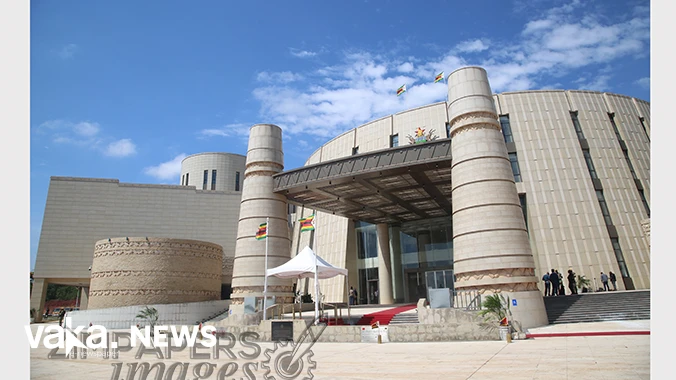Parly gazettes revised PVO Bill
- Category: General

- By Dion Kajokoto
Revisions to the Private Voluntary Organisations Amendment Bill to accommodate reservations by President Mnangagwa when he exercised his constitutional right to withhold his assent on the proposed law until Parliament had reconsidered the matter have been gazetted.
The President expressed worry about the need to adhere to global best practices in order to stop charitable trusts and other organizations that aren't typically associated with volunteering being exploited as a conduit for money from terrorists and criminals.
It is currently planned for the Bill to be reintroduced for discussion in Parliament.
After the original Bill was passed by the National Assembly and Senate last year, the President withheld his consent and referred the Bill back to Parliament. Now, lawmakers are expected to consider additional amendments proposed by Public Service, Labour, and Social Welfare Minister July Moyo. One amendment that has been suggested is to Clause Two of the Bill, which now offers a more thorough description and explanation of terminology used in the main Act.
The phrase allows for the definition of "funds or other assets" to be included, and it is fairly broad in that it covers all types of assets, including financial assets. Additionally, it modifies the definition of "private voluntary organization" to guarantee that it encompasses all pertinent organizations covered by this law, even if such coverage is limited to making sure an organization isn't being used to launder money intended for terrorist purposes.
The preamble of the bill states that "a definition for the Financial Intelligence Unit of the Reserve Bank is necessary because of the role the unit will play in assisting the Registrar of Private Voluntary Organizations in that regard, given the international dimension of terrorist and proliferation financing through the abuse of charities." "The word 'private voluntary organisation' does not encompass all activities, such as fundraising for schools or hospitals conducted by or on behalf of the relevant schools or hospitals. However, if the operations are carried out by any high-risk business, even those that are exempt can be subject to monitoring for money laundering.
Clause six amends the primary Act to remove the current clause requiring PVO registration and replaces it with a more comprehensive provision that includes trusts that were previously exempt from registration. Organizations that were not previously covered by the PVO Act must now register as PVOs; however, in certain situations, a grace period will be allowed for compliance.
This means that organizations that are not trusts but receive outside funds to promote charitable goals will have a fair amount of time to comply with the Act. Since non-testamentary trusts, including those that have registered with the Registrar of Deeds, receive outside funding, the Bill mandates their registration. They will have a fair amount of time to abide under the PVO Act.
"In all the aforementioned situations, a trust, body, association of individuals, whether corporate or unincorporated, or any establishment that was lawfully operating in Zimbabwe prior to the start of the Private Voluntary Organizations Amendment Bill, 2024, before being obliged to register under the new legislation, may, following the initiation of registration procedures, continue to operate until the conclusion of those proceedings," the Bill states.
The preamble of the bill, which will amend the Private Voluntary Organizations Act, states that one of its goals is to carry out the international Financial Action Taskforce's recommendation to Zimbabwe regarding the misuse of charities to finance criminal and terrorist activities. "In addition, it has become imperative to optimize administrative processes for nonprofit organizations in order to facilitate effective oversight and registration of charitable organizations, which are officially recognized as private voluntary organizations in Zimbabwe," the statement reads.
President Mnangagwa utilized his prerogative to dissent from the PVO Amendment Bill last year. The President may refuse to provide his or her consent to a bill in one of two ways specified by the Constitution.One option is for Parliament to completely revise the Bill to address all of the President's concerns before the President signs it into law. In the second, Parliament has the authority to overrule the President's concerns; however, it must then repass the Bill in the National Assembly with a two-thirds majority within a span of 21 days.
In the event that the President is not in agreement, he may choose to ask the Constitutional Court to rule on its validity. President Mnangagwa has sent this bill back to Parliament for review on two occasions after voicing certain concerns. The Mines and Mining Amendment Bill was sent back by President Mnangagwa in 2018 because he believed certain of its provisions—particularly those pertaining to property rights—might be unconstitutional. Section 131 of the Constitution gives the President the authority to send a bill back if he has any concerns about it.






